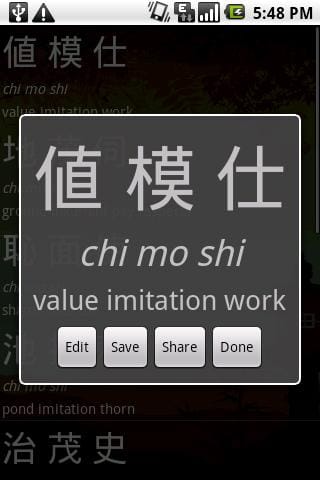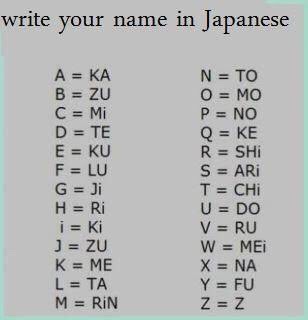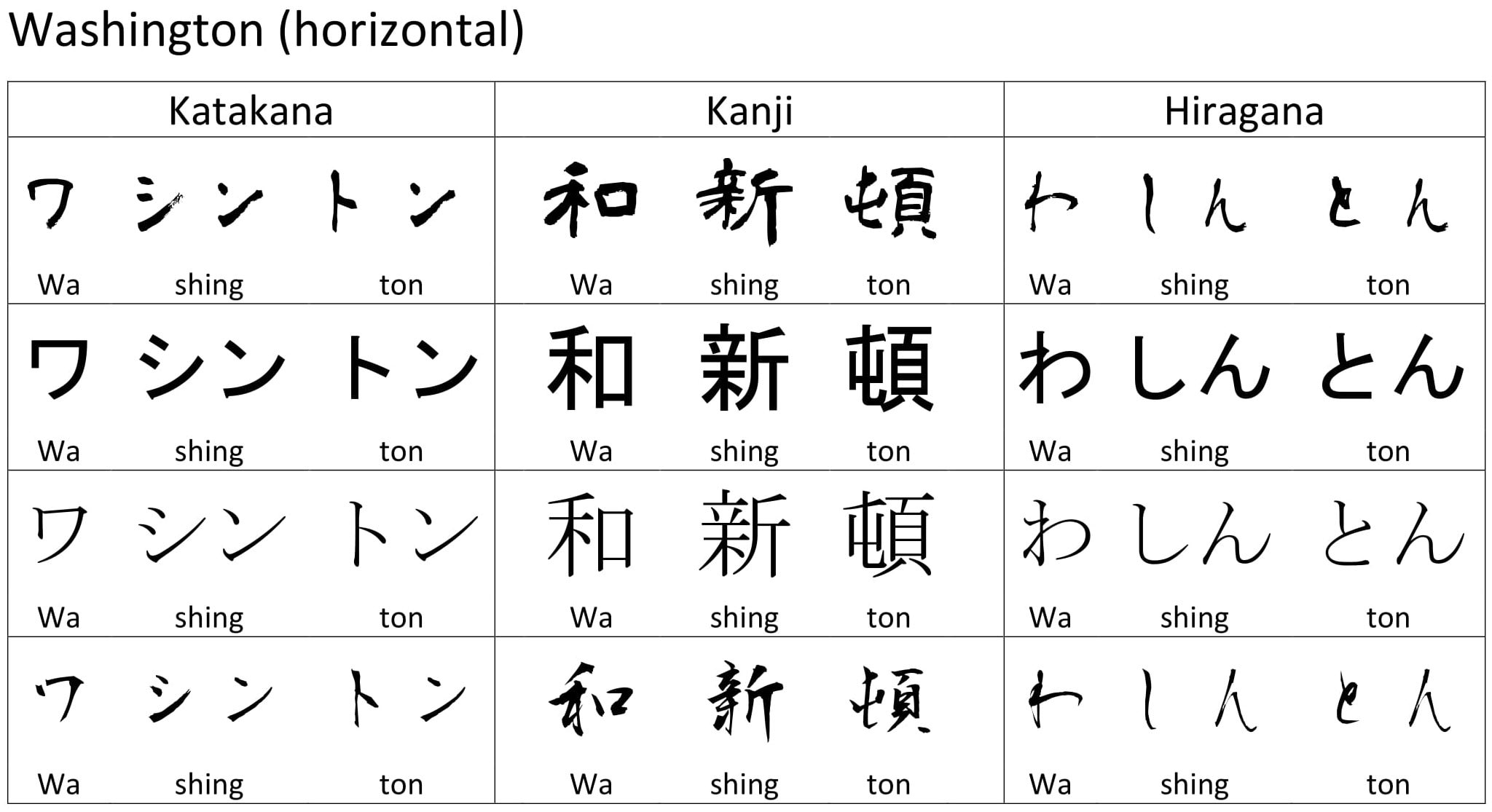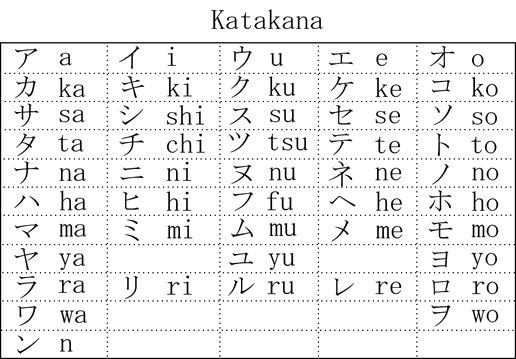Topic translate name to japanese: Embark on a fascinating journey to translate your name to Japanese, discovering a unique aspect of your identity through the beauty of Nihongo.
Table of Content
- How can I translate my name to Japanese?
- Understanding Katakana, Hiragana, and Kanji for Name Translation
- Online Tools and Software for Japanese Name Translation
- Guides on Pronouncing Japanese Translated Names
- Common Pitfalls and Accuracy in Japanese Name Translation
- YOUTUBE: Writing Your Name in Japanese
- Cultural Significance and Meaning Behind Japanese Names
- Personalizing Your Japanese Name Translation Experience
- Comparing Japanese Name Translation Services: Accuracy, Speed, and Features
- How to Use Your Japanese Name in Real-Life Situations
- Understanding the Limitations of Japanese Name Translation Tools
- Exploring the History and Evolution of Japanese Naming Conventions
How can I translate my name to Japanese?
Translating your name to Japanese can be done by using the phonetic alphabet called \"katakana\". Follow these steps:
- Start by finding the translation of each individual sound in your name. For example, if your name is \"John\", you would translate the sounds \"J\", \"o\", \"h\", and \"n\".
- To find the katakana equivalent of each sound, you can use online resources or consult a Japanese language guide. For example, the katakana for \"John\" would be ジョン (pronounced \"jyon\").
- Write down the katakana for each sound of your name.
- Combine the katakana symbols together to create your name in Japanese. For example, if your name is \"John\", you would write it as ジョン.
Keep in mind that the pronunciation may not be an exact match, as Japanese phonetics differ from English. It\'s also worth noting that some names may have multiple possible translations based on the desired pronunciation or meaning.
Once you have your name in katakana, you can use it for various purposes such as introducing yourself in Japanese, writing your name on documents, or even creating a Japanese signature!

READ MORE:
Understanding Katakana, Hiragana, and Kanji for Name Translation
Translating your name into Japanese involves understanding the distinct alphabets used in the language: Katakana, Hiragana, and Kanji. Each plays a unique role in the translation process.
- Katakana: Primarily used for foreign names and words not native to Japanese. It\"s the most common choice for translating non-Japanese names, offering a phonetic approximation of the sounds.
- Hiragana: Used for Japanese words and grammatical elements. It\"s less common for name translation but is sometimes used for names that have a direct Japanese equivalent.
- Kanji: Characters that represent words or concepts. Some choose to translate their names to Kanji based on the meaning or phonetic components, although this requires careful consideration to ensure the chosen Kanji reflects the desired attributes and sounds.
Choosing the right alphabet depends on personal preference, the name\"s origin, and how closely you want the translation to reflect your original name\"s sound or meaning.
- Determine if your name has a direct Japanese equivalent or a meaning that can be expressed in Kanji.
- If not, use Katakana to phonetically spell out your name. This method ensures your Japanese name sounds as close as possible to your original name.
- Consult with a native speaker or a professional translator if you\"re considering Kanji to ensure the meaning is appropriate and culturally respectful.
Remember, translating your name into Japanese is not only about finding the right characters but also embracing an aspect of Japanese culture. Take your time to explore the options and choose the one that best represents you.

Online Tools and Software for Japanese Name Translation
Discovering your Japanese name is made easy with a variety of online tools and software designed to translate names accurately. These resources range from simple phonetic converters to advanced programs that suggest Kanji.
- Phonetic Translation Tools: Websites and apps that convert your name into Katakana based on its phonetic spelling. Ideal for those looking for a straightforward transliteration of their name.
- Kanji Name Suggestion Tools: More sophisticated platforms may offer Kanji translations based on the meaning or sound of your original name. These require careful consideration to ensure the Kanji’s meaning aligns with your identity.
- Mobile Apps: Several mobile applications are available for both Android and iOS devices, providing instant name translations on-the-go. They often include features such as pronunciation guides and the ability to save your Japanese name.
When using these tools, it\"s important to remember:
- Accuracy varies, so consider consulting with native speakers or professionals for names translated into Kanji.
- Some tools allow customization of the translation process, enabling you to choose between Katakana, Hiragana, or Kanji based on personal preference or the significance of the name.
- Review the translated name for its cultural appropriateness and personal relevance before finalizing your choice.
Online translation tools are a great starting point for anyone curious about their Japanese name. Whether you\"re looking for a phonetic translation or a meaningful Kanji representation, there\"s a digital solution to meet your needs.

Guides on Pronouncing Japanese Translated Names
Mastering the pronunciation of your Japanese name enhances its authenticity and your connection to the language. Here are some guidelines to help you pronounce Japanese translated names accurately.
- Understand Japanese Phonetics: Japanese pronunciation is relatively straightforward once you understand the basic sounds. Each Katakana and Hiragana character represents a specific syllable or sound, making pronunciation consistent and predictable.
- Break Down the Name: Divide your name into syllables or Kana characters. This will help you focus on the pronunciation of each part before combining them into the full name.
- Use Pronunciation Guides: Many online translation tools provide audio or phonetic guides. Listening to these can give you a clear idea of how your name should sound in Japanese.
Tips for practicing:
- Listen to native speakers pronounce similar sounds or names. Platforms like YouTube or language exchange websites can be valuable resources.
- Practice with a native Japanese speaker or tutor who can provide immediate feedback and correction if needed.
- Record yourself pronouncing your Japanese name and compare it with native pronunciation to identify areas for improvement.
Remember, the goal is to pronounce your name as naturally as possible in Japanese. With practice and the right resources, you can achieve a pronunciation that you\"re proud to share and that respects the beauty of the Japanese language.

Common Pitfalls and Accuracy in Japanese Name Translation
When translating names into Japanese, achieving accuracy while avoiding common pitfalls is crucial. Here\"s how to ensure your name translation resonates correctly and respectfully within Japanese culture.
- Overreliance on Direct Translation: Names often carry meanings that cannot be directly translated. Opting for phonetic translation using Katakana usually provides the most accurate representation of non-Japanese names.
- Improper Use of Kanji: Choosing Kanji for your name based solely on sound without understanding the meaning can lead to unintended or inappropriate interpretations. Always consult with a native speaker or professional.
- Mispronunciation: Even with a correctly written name, incorrect pronunciation can change its perception. Familiarize yourself with the sounds of Japanese to avoid this.
Steps to ensure accuracy:
- Research your name\"s meaning and consider how it can be appropriately represented in Japanese. This may involve choosing a phonetic translation or selecting Kanji with similar meanings.
- Use reputable translation services or tools, and verify the translation with multiple sources to avoid errors common in automated translations.
- Practice pronunciation with native speakers, leveraging language learning platforms or communities to refine your understanding and usage of your Japanese name.
By being mindful of these aspects, you can ensure that your Japanese name translation is not only accurate but also meaningful and respectful of Japanese culture and language nuances.

_HOOK_
Writing Your Name in Japanese
\"Discover the intricate world of Japanese translation as we unravel the fascinating art of capturing the essence of the language. Join us in this captivating journey of bridging cultures one word at a time!\"
Trying Your Name in Japanese
\"Have you ever wondered what your name would mean in a different language? Unlock the mysteries behind name translations and explore the rich cultural significance they hold. Embark on this enchanting adventure and uncover the hidden stories within your name.\"
Cultural Significance and Meaning Behind Japanese Names
Japanese names carry deep cultural and personal significance, often reflecting traits, aspirations, or natural elements. Understanding this cultural context is essential when translating names into Japanese or selecting a Japanese name.
- Connection with Nature: Many Japanese names are inspired by natural elements, such as flowers (Sakura), seasons (Haru for spring), or other aspects of nature, symbolizing beauty, strength, or other desired characteristics.
- Family and Social Values: Japanese names can also reflect familial aspirations, virtues (like wisdom, beauty, or strength), or attributes hoped for in the individual\"s character.
- Kanji Selection: The choice of Kanji in a name is highly significant, as each Kanji has a unique meaning and sound. The combination of Kanji in a name can convey complex concepts and characteristics.
When adopting or translating a name into Japanese, consider:
- The meaning behind each Kanji character and ensuring they align with your personal values or identity.
- The sound of the name, as it should be pleasing and carry positive connotations within Japanese culture.
- Consulting with cultural experts or native speakers to understand the nuances and appropriateness of your chosen name.
By integrating these considerations, your Japanese name will not only be a phonetic representation of your identity but also carry a meaning that resonates with the rich cultural heritage of Japan.

Personalizing Your Japanese Name Translation Experience
Creating a Japanese name that reflects your identity is a deeply personal journey. Here are steps and tips to make the process as meaningful and individualized as possible.
- Explore Your Reasons: Understanding why you want a Japanese name—whether for cultural appreciation, as part of learning the language, or for integration into a community—can guide the translation process.
- Research and Reflect: Look into the meanings and sounds of Japanese names. Reflect on what you want your name to convey about you.
- Consider Phonetic and Meaningful Translations: Decide whether you prefer a phonetic translation of your name using Katakana, or if you\"d like a name that carries a specific meaning using Kanji.
Steps to personalize your name:
- Identify key traits or elements you wish your name to reflect. This can include characteristics, personal stories, or aspirations.
- Consult with native speakers or experts in Japanese culture to ensure your chosen name or translation is appropriate and meaningful.
- Experiment with different translations or Kanji combinations. Use online tools or software for initial ideas, but don\"t rely solely on them for the final choice.
- Embrace the process as a journey of self-discovery and cultural exploration. Your Japanese name is a bridge between your identity and the Japanese language and culture.
Personalizing your Japanese name translation enriches your connection to the name, making it more than just a label, but a reflection of your unique identity and journey.

Comparing Japanese Name Translation Services: Accuracy, Speed, and Features
Choosing the right Japanese name translation service is crucial for ensuring accuracy, speed, and satisfaction. Here\"s how to compare services to find the best match for your needs.
- Accuracy: The most important aspect of a translation service. Look for services with a track record of accurate translations, ideally with native Japanese speakers reviewing the translations.
- Speed: Depending on your needs, the speed at which a service can deliver your translated name varies. Some offer instant translations, while others, particularly those involving Kanji selection and cultural consultation, may take longer.
- Features: Additional features such as pronunciation guides, cultural appropriateness checks, and the option to choose between Katakana, Hiragana, or Kanji can enhance your translation experience.
To compare services effectively:
- Identify your primary need: accuracy, speed, or a balance of both. This will help narrow down your options.
- Read reviews and testimonials from previous users to gauge the reliability and quality of each service.
- Consider the level of personalization and customer support offered. Personalized advice or consultation can significantly impact the quality of your translated name.
- Compare pricing, but remember that the cheapest option may not always provide the best value in terms of accuracy and service quality.
Finding the right translation service involves balancing these factors to choose a provider that meets your specific needs and ensures your Japanese name is both meaningful and accurate.

How to Use Your Japanese Name in Real-Life Situations
Adopting a Japanese name can be a meaningful step in embracing Japanese culture, especially in social, professional, and educational settings. Here are practical ways to use your Japanese name in real-life situations.
- Social Interactions: Introduce yourself with your Japanese name in culturally immersive environments, such as language exchange meetups, cultural festivals, or while visiting Japan. It can foster connections and show respect for the culture.
- Professional Endeavors: Use your Japanese name on business cards, email signatures, or during professional meetings, especially if you\"re engaging with Japanese-speaking clients or colleagues. It demonstrates cultural appreciation and effort to integrate.
- Educational Settings: If you\"re studying the Japanese language or participating in exchange programs, using your Japanese name can enhance your learning experience and help you immerse yourself more fully in the language and culture.
Tips for introducing your Japanese name:
- Be prepared to explain the meaning and reason behind choosing your Japanese name, as this can be a conversation starter and deepen connections.
- Practice the correct pronunciation of your Japanese name, ensuring you can introduce yourself smoothly and confidently.
- Respect the context and be mindful of when it\"s appropriate to use your Japanese name. In formal or official situations, it might be necessary to use your legal name but include your Japanese name as an additional identifier.
Using your Japanese name in real-life situations can enrich your interactions and experiences, bridging cultural gaps and deepening your personal connection to Japan.

Understanding the Limitations of Japanese Name Translation Tools
While Japanese name translation tools offer convenience and immediate results, it\"s important to recognize their limitations for a nuanced and accurate translation. Here are key considerations when using these tools.
- Lack of Context: Automated tools may not understand the cultural and contextual nuances of your name, leading to translations that lack personal relevance or cultural appropriateness.
- Phonetic Limitations: Some sounds in foreign languages don\"t have direct equivalents in Japanese, resulting in approximations that might not accurately reflect your name\"s original pronunciation.
- Kanji Complexity: Selecting Kanji based on sound alone can lead to meanings that are irrelevant or even undesirable. Understanding each Kanji\"s meaning is crucial but beyond the capability of basic translation tools.
To mitigate these limitations:
- Use translation tools as a starting point, but seek validation from native speakers or professionals for accuracy and cultural suitability.
- Consider the purpose of your Japanese name. If it\"s for formal use, more thorough research and consultation might be necessary.
- Remember that a name\"s translation can vary significantly depending on the chosen method (Katakana, Hiragana, or Kanji) and the translator\"s interpretations.
Acknowledging these limitations will help you approach Japanese name translation with realistic expectations, ensuring a more meaningful and appropriate result.

_HOOK_
READ MORE:
Exploring the History and Evolution of Japanese Naming Conventions
The Japanese naming system has a rich history and has evolved over centuries, reflecting the country\"s social and cultural changes. Understanding this history can provide valuable insights into the significance of names in Japanese culture.
- Ancient Times: Initially, Japanese names were heavily influenced by Chinese characters (Kanji) and Buddhist culture, with names often reflecting natural elements and virtues.
- Heian Period: Aristocrats began using lengthy names that included clan names and titles, showcasing their status and lineage.
- Meiji Restoration: The introduction of the family registry system (Koseki) standardized the use of surnames for all citizens, leading to the modern structure of a family name followed by a given name.
Key changes in modern times include:
- The increase in creative and unique given names, reflecting parents\" desires for their children to stand out.
- The adoption of Western naming practices in professional contexts, such as using a given name first when writing in Roman characters.
- Legal reforms allowing for more flexibility in the use of Kanji in names, expanding the possibilities for name selection.
This historical context highlights the deep cultural significance of names in Japan, reflecting personal identity, familial heritage, and societal changes. As such, the process of translating or adopting a Japanese name carries both personal and cultural weight, deserving careful consideration and respect.
Embarking on the journey to translate your name into Japanese opens a gateway to cultural exploration and personal discovery, offering a unique connection to the rich tapestry of Japan\"s language and heritage.








